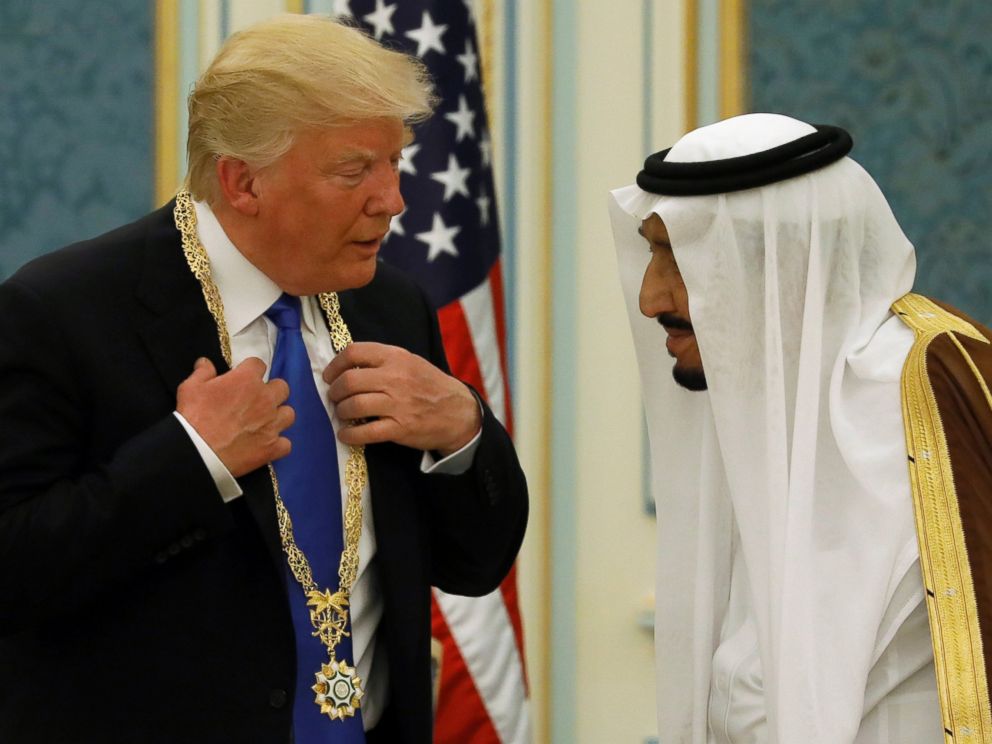
By Jordyn Phelps & RYAN STRUYK ABC news
President Trump signed a $110 billion arms deal with Saudi Arabia on Saturday, the initial day of his first foreign trip since taking office. “That was a tremendous day. Tremendous investments in the United States,” Trump said. “Hundreds of billions of dollars of investments into the United States and jobs, jobs, jobs,” he said. The agreement commits Saudi Arabia to buying military equipment from the U.S. and to hiring American companies to build such equipment in Saudi Arabia, according to Gary Cohn, the president’s chief economic adviser. The deal includes tanks and helicopters for border security, ships for coastal security, intelligence-gathering aircraft, a missile-defense radar system and cybersecurity tools, according to the State Department.
In a joint press appearance on Saturday with the Saudi foreign minister, Secretary of State Rex Tillerson praised the pact as a “historic moment in U.S.-Saudi relations.” He also expressed an openness to talks with Iran. “I’ve never shut off the phone to anyone that wants to talk or have a productive conversation,” he said. “At this point, I have no plans to call my counterpart in Iran, although in all likelihood we will talk at the right time.”. Tillerson said the pact sends a “very strong message to our common enemies” on trying to disrupt “violent extremist messaging” and “financing of terrorism.” He also said the deal “lowers the cost to the American people of providing security in this region.”
The Trump administration has been working to finalize the deal over the past several months. White House press secretary Sean Spicer called the deal “huge news for U.S. companies and American workers who will benefit” in a tweet on Saturday morning. This is huge news for US companies and American workers who will benefit #jobs https://t.co/9RarqOwVAy — Sean Spicer (@PressSec) May 20, 2017
Trump’s son-in-law and adviser Jared Kushner personally called the president of Lockheed Martin, a major supplier of U.S. military equipment, in order to negotiate a lower price for the radar system, according to the New York Times. “This package of defense equipment and services supports the long-term security of Saudi Arabia and the Gulf region in the face of malign Iranian influence and Iranian related threats. Additionally, it bolsters the Kingdom’s ability to provide for its own security and continue contributing to counterterrorism operations across the region, reducing the burden on U.S. military forces,” the State Department said in a statement. A White House official added that in addition to demonstrating the U.S. commitment to Saudi Arabia “and our Gulf partners,” it also expands “opportunities for American companies in the region, and supporting tens of thousands of new jobs in the U.S. defense industrial base.”













